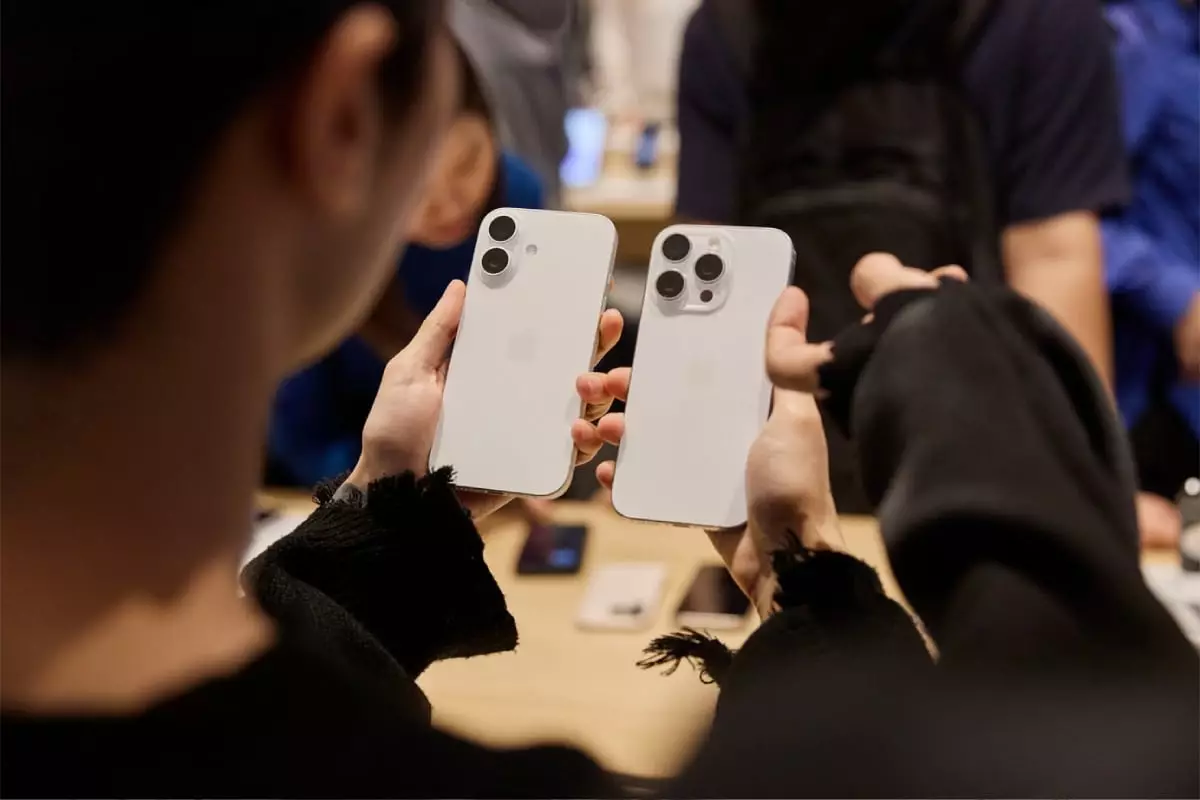In an era where consumers are bombarded with endless product choices, sales events have become a double-edged sword. They either entice us into a frenzied purchasing spree or leave us disillusioned by prices that are “discounted” yet still out of reach. Enter the Vijay Sales Apple Days Sale, a tantalizing opportunity for tech buffs in India, promising significant savings on coveted Apple products. This sale, commencing on May 24 and concluding on June 1, is a much-anticipated event that suggests a golden opportunity to turn dreams of owning the latest iPhone into reality.
However, while the numbers may seem enticing, it’s crucial to approach such sales with a discerning eye. The discounts on the iPhone 16 and 15 models are touted as hefty, but one must question whether these are genuine reductions or smart marketing tactics designed to lure consumers into thinking they are fetching a deal. With discounts reaching up to Rs. 4,000 for the iPhone 16 series, and similarly appealing offers for previous models, shoppers might feel a surge of urgency to act fast. Is this a well-orchestrated tactic to encourage pressure buying? One can’t help but feel a bit skeptical, given the history of salesmanship that often obscures the true value of a product.
Financing: The Fine Print
Beyond the allure of markdowns, the collaboration between Vijay Sales and various lenders to facilitate payment discounts on Apple products deserves scrutiny. Sure, the prospect of purchasing a high-end iPhone or a premium MacBook with added financial incentives sounds appealing. However, it inherently raises questions about the implications of financing, often masked under layers of convenience. The bittersweet reality is that while consumers may rejoice at receiving instant discounts for transactions made via specific banks, they may simultaneously find themselves entangled in debt cycles that are arduous to escape.
Luring customers with appealing low initial costs can lead them to overlook the longer-term financial implications. As a society, we often prioritize immediate gratification over sustained fiscal health, which in itself is a symptom of a larger economic issue: consumerism at the cost of financial literacy. Rather than reflexively taking the bait at the Apple Days Sale, savvy shoppers would benefit from a pause to assess the total cost of ownership, including post-purchase financial commitments.
The Changing Face of Loyalty
Vijay Sales’ promotional strategy extends beyond the immediate discounts on Apple products to include exchange bonuses and a range of other enticing offers. Customers can trade in eligible smartphones for bonuses up to Rs. 7,500—a tactic that not only bolsters sales revenue but simultaneously fosters a sense of loyalty among consumers. It’s a clever ploy, as it feeds into our human desire to belong to a community that values our possessions. Trading in an older device feels rewarding, but is it genuine loyalty or simply a transaction based on convenience?
On the flip side, the notion of fostering brand loyalty through massive discount events is also precarious. As consumers become accustomed to significant sales events, their perception of the products’ real value may become distorted. When Apple products are constantly available at discounted prices, it raises troubling questions about their actual worth and the brand’s identity in the marketplace. In a world defined by consumer trends, brands risk an erosion of value perception, one sale at a time.
The Inevitable Social Commentary
The Apple Days Sale is not merely an event; it is a reflection of our consumer-driven society. As consumers, we find ourselves grappling with a paradox: the desire to acquire cutting-edge technology that enhances our lives, coupled with the moral dilemma of excessive consumption. How does one navigate the fine line between necessity and desire in the face of such attractive offers?
The glistening products promised during these sale events often mask deeper social issues, including the environmental impact of rapid technology turnover. Each new iPhone or MacBook eagerly propelled into consumers’ hands comes with a host of electronic waste implications.
Moreover, amidst the frenzy of wanting the newest gadget, one must reflect on whether these purchases stem from genuine need or mere societal pressure to stay up-to-date with technological trends. A meaningful consumer decision would prioritize not just the quick gratification that discounts afford, but also a grounded understanding of the broader consequences of our consumption patterns.
While Vijay Sales’ Apple Days presents a formidable opportunity for savings, it also demands deeper contemplation about the values we ascribe to technology, consumption, and financial responsibility in today’s fast-paced, ever-changing world.


Leave a Reply